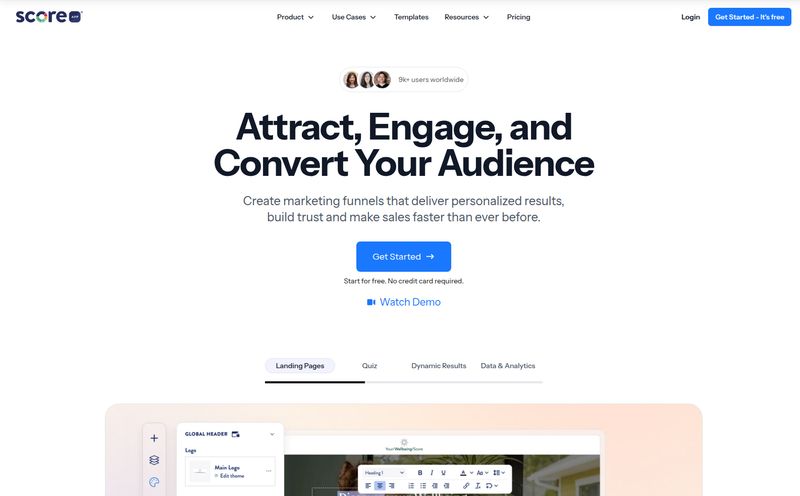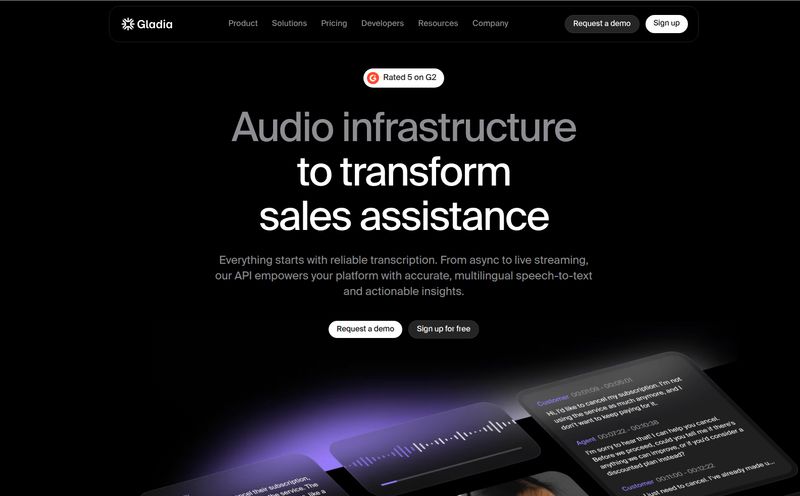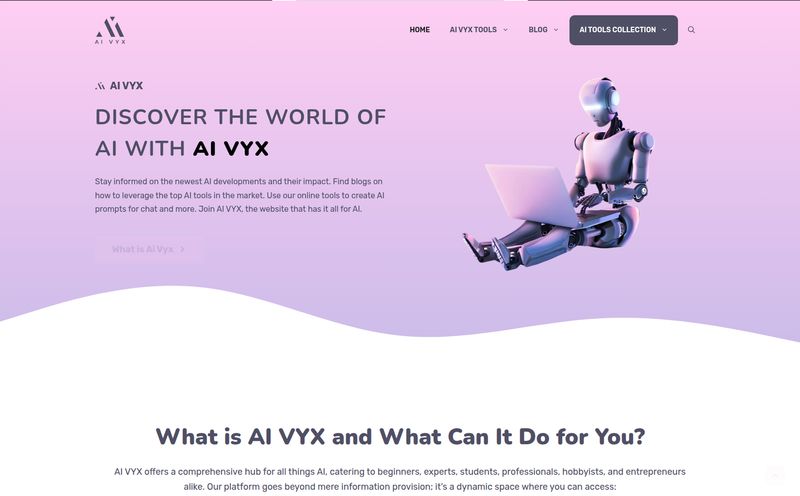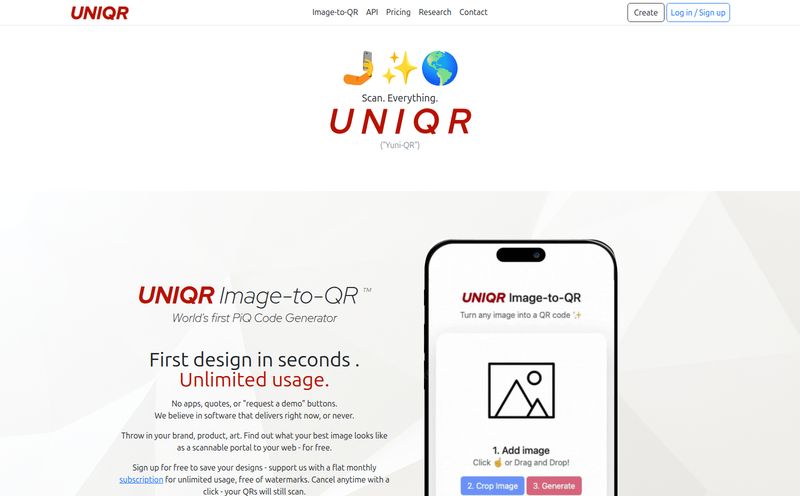In the world of SEO and digital marketing, data is king. We live and breathe it. We need competitor pricing, SERP data, lead lists, social media trends... you name it. And for years, the process has been a bit of a grind. You either spend hours manually copy-pasting data into a spreadsheet (my condolences), or you wrestle with a clunky scraping tool that gets blocked the second it sniffs a CAPTCHA.
I’ve been down that road more times than I can count. It’s frustrating. So when I come across a tool that promises to change the game, I’m skeptical but also incredibly curious. Enter Apify. I’ve seen the name pop up in developer communities and marketing forums for a while now, and it’s not just another web scraper. Calling it that feels like calling a smartphone just a phone. It’s so much more.
This isn't your standard, feature-list-regurgitation review. This is my take, as a professional who’s spent years in the trenches, on whether Apify is the real deal for serious data extraction and automation.
What Exactly is Apify Anyway?
At its core, Apify is a cloud platform for anything related to getting information from the web. Think of it less as a single tool and more as a giant workshop. Some people come to the workshop to pick up a pre-built, ready-to-go piece of furniture. Others come with their own blueprints and use the workshop’s advanced machinery to build something completely custom. That’s Apify in a nutshell.
It's a full-stack platform where developers can build, run, and even sell their own web automation tools, which Apify calls “Actors.” And for the non-developers among us (hello, fellow marketers!), it’s a marketplace—the Apify Store—where you can find hundreds of these pre-built Actors to do your bidding. Scrape Google Maps reviews? There’s an Actor for that. Monitor Instagram profiles? Yep, there’s one for that too. It’s no wonder big players like Accenture and Siemens are listed as users.
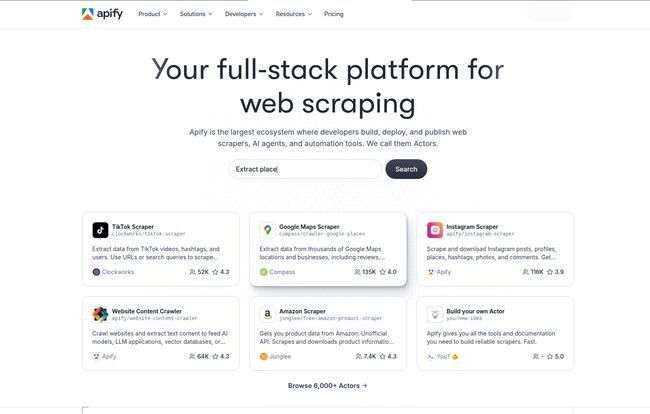
Visit Apify
The Two Sides of the Apify Coin: Marketplace vs. DIY
This dual personality is probably Apify's biggest strength. It caters to two completely different audiences without really compromising on either experience.
For the "I Need Data Now" Crowd: The Apify Store
This is where most SEOs, lead-gen specialists, and small business owners will probably start. The Apify Store is brilliant. It’s an app store for data scrapers. You can find publicly available Actors for almost any common task you can think of. You just find the one you need, pop in a few parameters (like a URL or a keyword), and hit run. The platform handles all the messy background stuff—the servers, the proxies, all of it. It’s the convenience of a SaaS tool with the power of a custom-built solution.
For the Developers and Tinkerers: Building Your Own Actors
Now, this is where it gets really interesting for the more technically inclined. If you can't find an Actor that does exactly what you need, you can build your own. Apify provides the entire infrastructure. You can write your scrapers in Python, JavaScript, or TypeScript, which covers most of the modern web development landscape.
Even better, they champion open source. Their library, Crawlee, is a hugely popular web scraping and browser automation library in the JavaScript ecosystem. This isn't some proprietary, locked-down system. They're building on and contributing to the open-source community, which gives them a ton of credibility in my book. Plus, you can even publish your custom Actors to the store and get paid when other people use them. A nice potential side-hustle for a skilled developer.
Key Features That Actually Matter
A feature list is just a list. Let’s talk about what these things mean in practice.
- Proxies and Anti-Blocking: Anyone who’s tried to scrape more than 10 pages from a major website knows the pain of being IP-banned. It's a constant cat-and-mouse game. Apify’s secret sauce is its proxy management. It offers a pool of datacenter and residential proxies that it intelligently rotates to make your scraper look less like a robot and more like a swarm of real users. It’s like having a master of disguise for your data collection efforts, and it saves you an incredible amount of hassle.
- Scheduling and Integration: Data gets stale. A list of leads from six months ago is practically useless. Apify lets you schedule your Actors to run automatically—hourly, daily, weekly, whatever you need. The real magic for me, though, is the integrations. You can have your data piped directly into a Google Sheet, an Airtable base, or sent to a webhook. This moves it from just “data” to an “automated workflow.”
- AI Agents: This is still emerging, but Apify is leaning into AI. This means you can create agents that don't just follow a script but can interpret content, fill out complex forms, and make decisions on the fly. We're moving beyond simple data extraction into true process automation. It's pretty exciting stuff.
Let's Talk Money: Understanding Apify's Pricing
Okay, this is where people can get a little confused, so let's break it down. Apify's pricing isn't a simple flat fee. It’s a flexible, pay-as-you-go model built on top of a monthly subscription. Essentially, your monthly subscription fee gets you a corresponding amount of “platform credits.”
Think of it like an arcade. You pay an entry fee (the subscription) and that fee gets you a bunch of tokens (the credits). You then spend those tokens on the games you want to play (running actors, using proxies, storing data).
This model is incredibly flexible but means your final bill can vary. If you run one massive scrape, you might use more credits than someone who runs a small scrape every day. It's fair, but it does require you to keep an eye on your usage. The good news? The free plan is genuinely useful, giving you $5 in credits to play around with, which is more than enough to test teh waters and run a few small jobs.
Here’s a quick look at their main tiers:
| Plan | Monthly Cost | Included Platform Credits | Best For |
|---|---|---|---|
| Free | $0 | $5 | Testing, hobby projects |
| Starter | $39 | $39 | Small businesses, freelancers |
| Scale | $199 | $199 | Growing businesses, agencies |
| Business | $999 | $999 | Larger teams, heavy usage |
| Enterprise | Custom | Custom | Custom solutions, SLAs |
My Final Verdict: Who is Apify Really For?
After spending a good amount of time with the platform, I have a pretty clear idea of who will get the most out of Apify. This is not the tool for someone who needs to grab a single HTML table from a Wikipedia page one time. A simple browser extension will do that just fine.
Apify is for people who are serious about web data. It’s for:
- SEOs and Marketers who need a reliable, automated way to track SERPs, monitor competitor pricing, or gather social media intelligence without becoming full-time developers.
- Developers who are tired of managing their own proxy infrastructure and servers and just want a powerful platform to deploy their scraping code.
- Startups and Agencies that rely on web data as a core part of their service, whether for lead generation, market research, or building data products.
- Data Scientists who need to feed their models with large, clean datasets from various web sources.
The learning curve for building custom Actors is real, but for using the pre-built ones? It's remarkably straightforward. The power here is scalability. You can start with a simple Actor from the store and, as your needs grow, you can hire a developer (or learn yourself) to build a completely custom solution on the very same platform.
Frequently Asked Questions about Apify
- 1. Can I use Apify without knowing how to code?
- Absolutely. That's what the Apify Store is for. You can find hundreds of pre-built scrapers and automation tools (Actors) that you can run with just a few clicks. You won't be building custom solutions from scratch, but you can accomplish a huge amount without writing a single line of code.
- 2. Is web scraping with Apify legal?
- This is a big question in the industry. Generally, scraping publicly available data is legal, but you need to be ethical. Don't hammer websites with requests, respect `robots.txt` files, and be mindful of personal data and privacy laws like GDPR and CCPA. Apify provides the tools, but it's your responsibility to use them ethically.
- 3. What are "Actors" in Apify?
- An "Actor" is just Apify's name for a serverless cloud program. It can be a web scraper, a data processing script, a browser automation tool, or an AI agent. Think of it as a small, specialized app that performs a single task on the Apify platform.
- 4. How does the pricing actually work? Is the monthly fee all I pay?
- Not necessarily. The monthly fee for a paid plan (e.g., $39 for Starter) gives you an equivalent amount of platform credits ($39 worth). If your usage in a month exceeds those credits, you'll be charged for the overage. The free plan also gives you $5 in credits to start. It's a usage-based model, which is flexible but requires some monitoring.
- 5. What's the difference between Apify and a tool like Octoparse?
- Tools like Octoparse or ParseHub are primarily point-and-click visual scraping tools designed for non-coders. Apify has that element with its Store, but it's also a full-blown development platform with APIs, support for multiple programming languages, and a deep open-source integration via Crawlee. Apify is generally more powerful and developer-centric.
- 6. What is Crawlee and why does it matter?
- Crawlee is a popular open-source library for web scraping and browser automation, primarily for JavaScript and TypeScript. It's maintained by the Apify team. The fact that a core part of their tech stack is open source is a huge sign of confidence and transparency. It means you're not locked into a completely proprietary system and can benefit from a large community of developers.
A Powerful Ally in the Quest for Data
So, is Apify the answer to all our data woes? For many, I think the answer is a resounding yes. It's a powerful, professional-grade platform that elegantly serves both the no-code user and the hardcore developer. It takes care of the most tedious and difficult parts of web scraping—infrastructure, scaling, and block avoidance—so you can focus on what to do with the data, not just how to get it.
It's a tool that can grow with you, from a simple one-off scrape to a complex, automated data pipeline that fuels your entire business strategy. And in this data-driven world, having an ally that powerful is a very good thing indeed.
